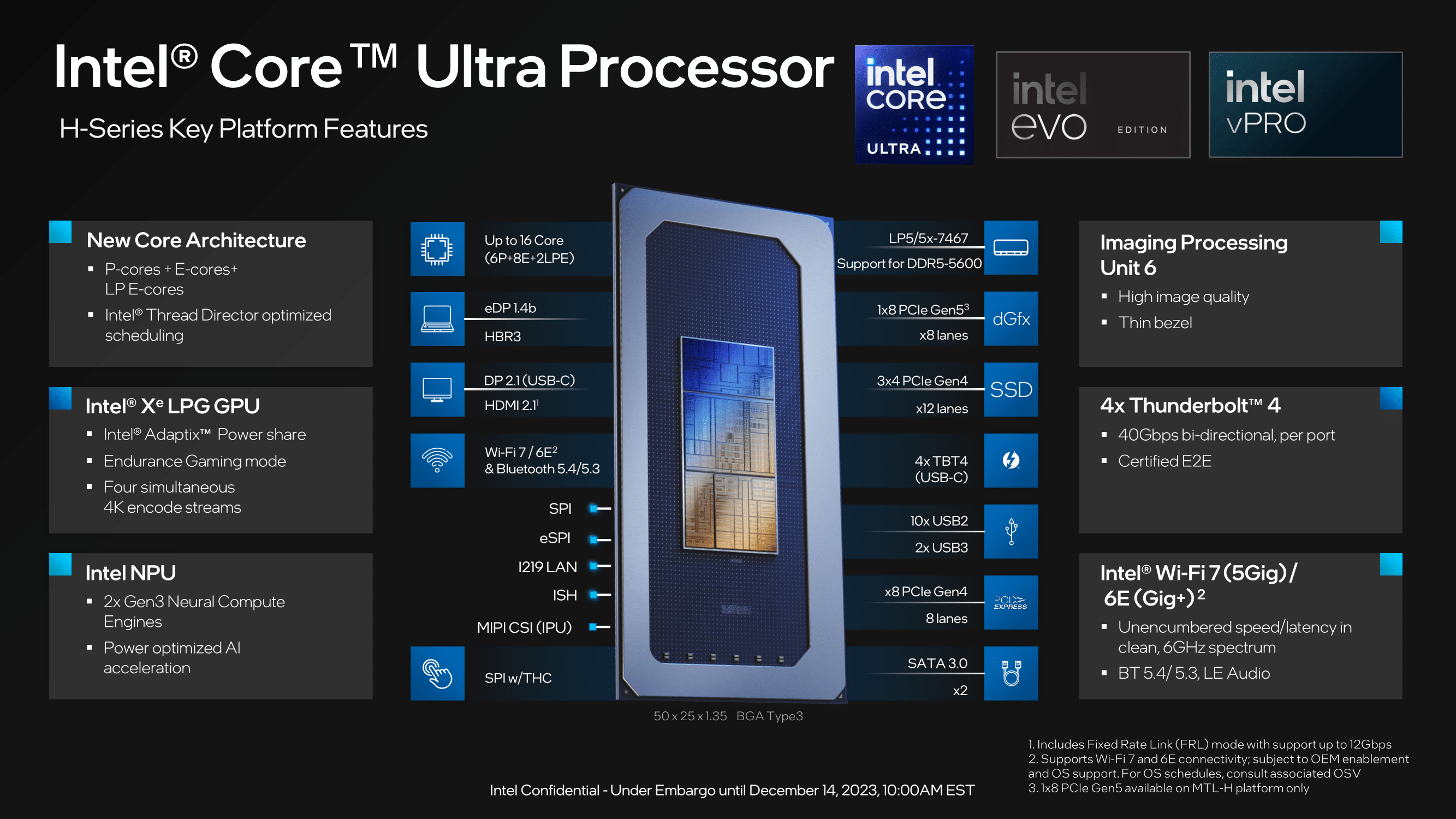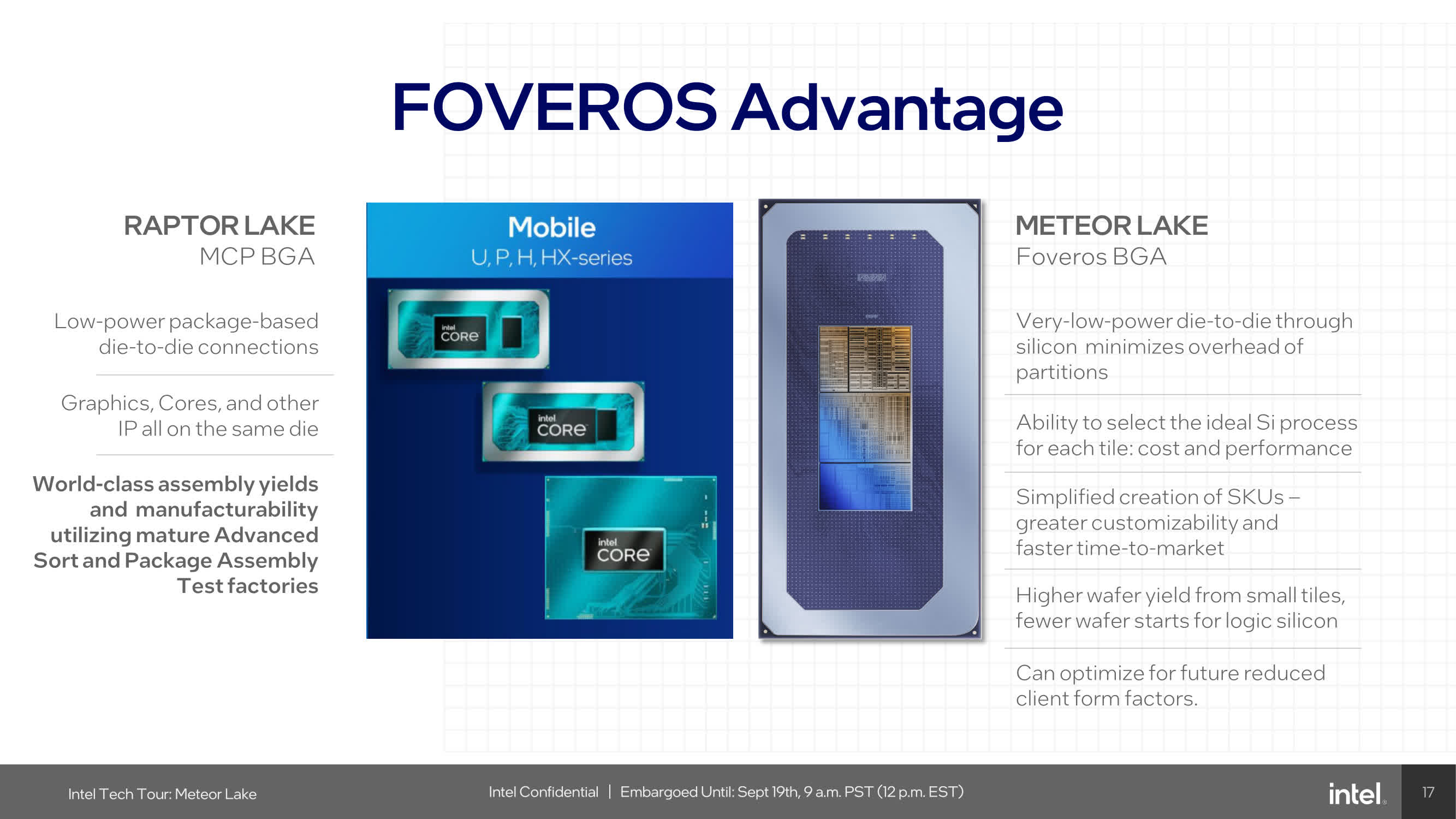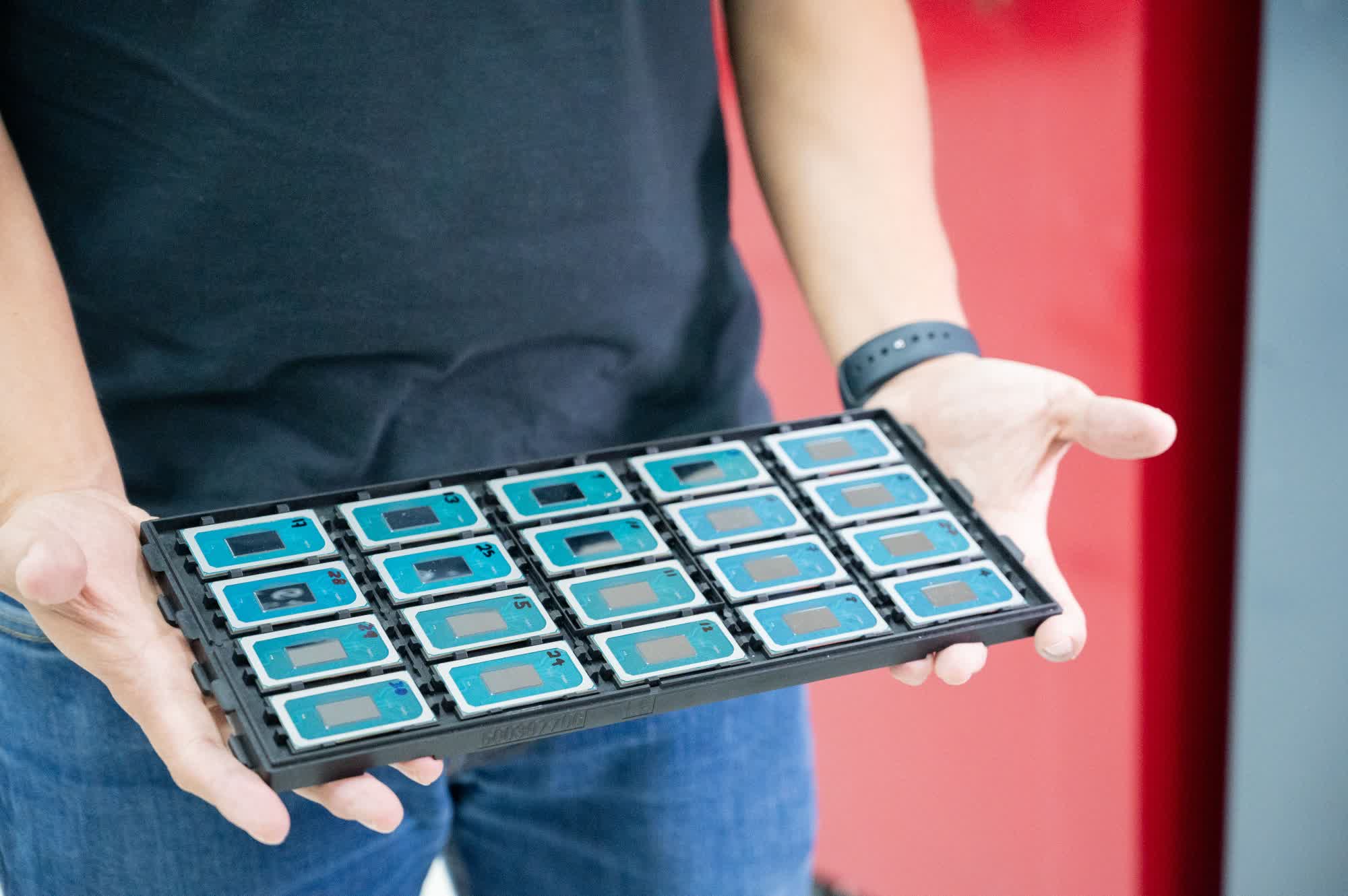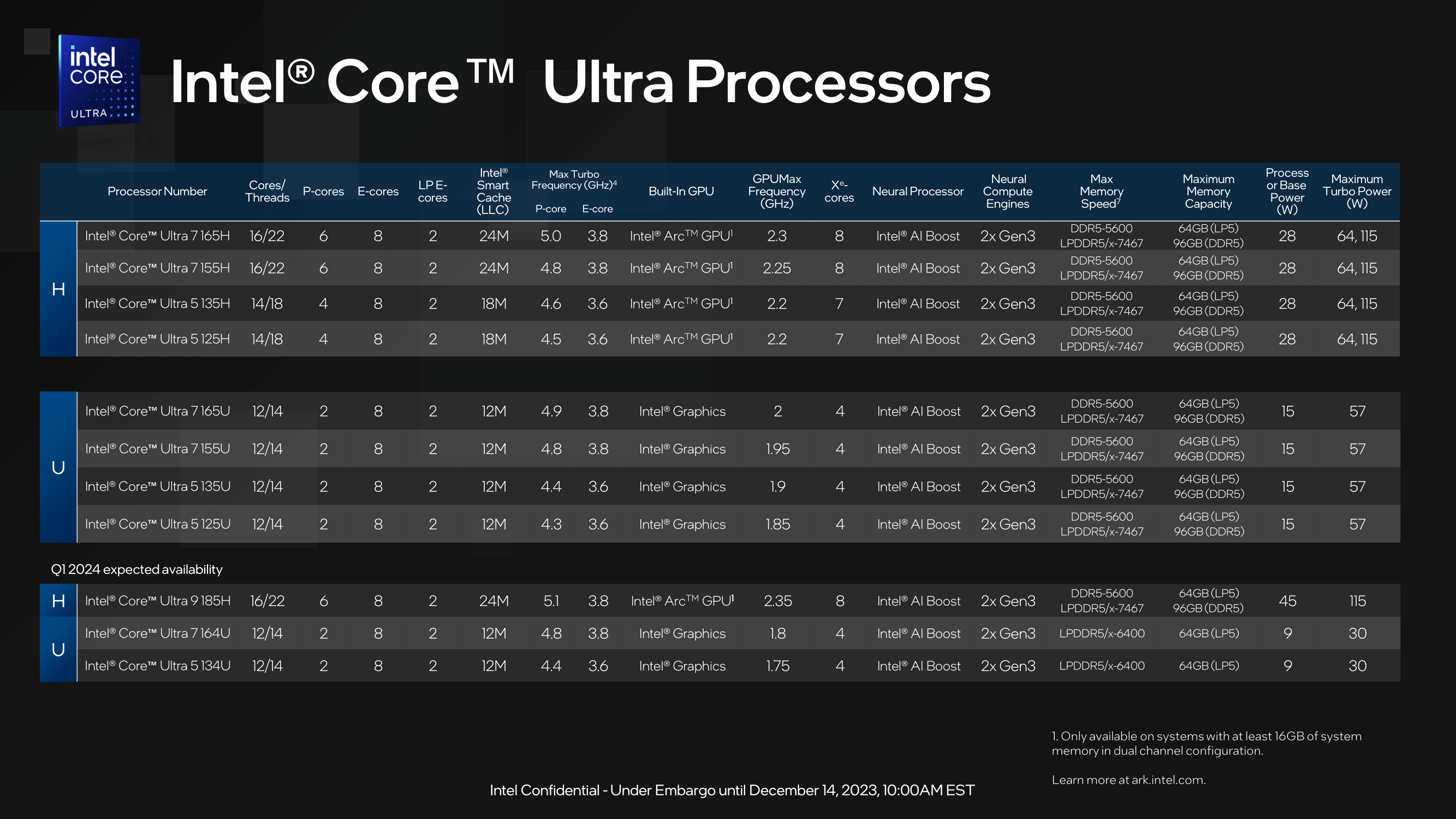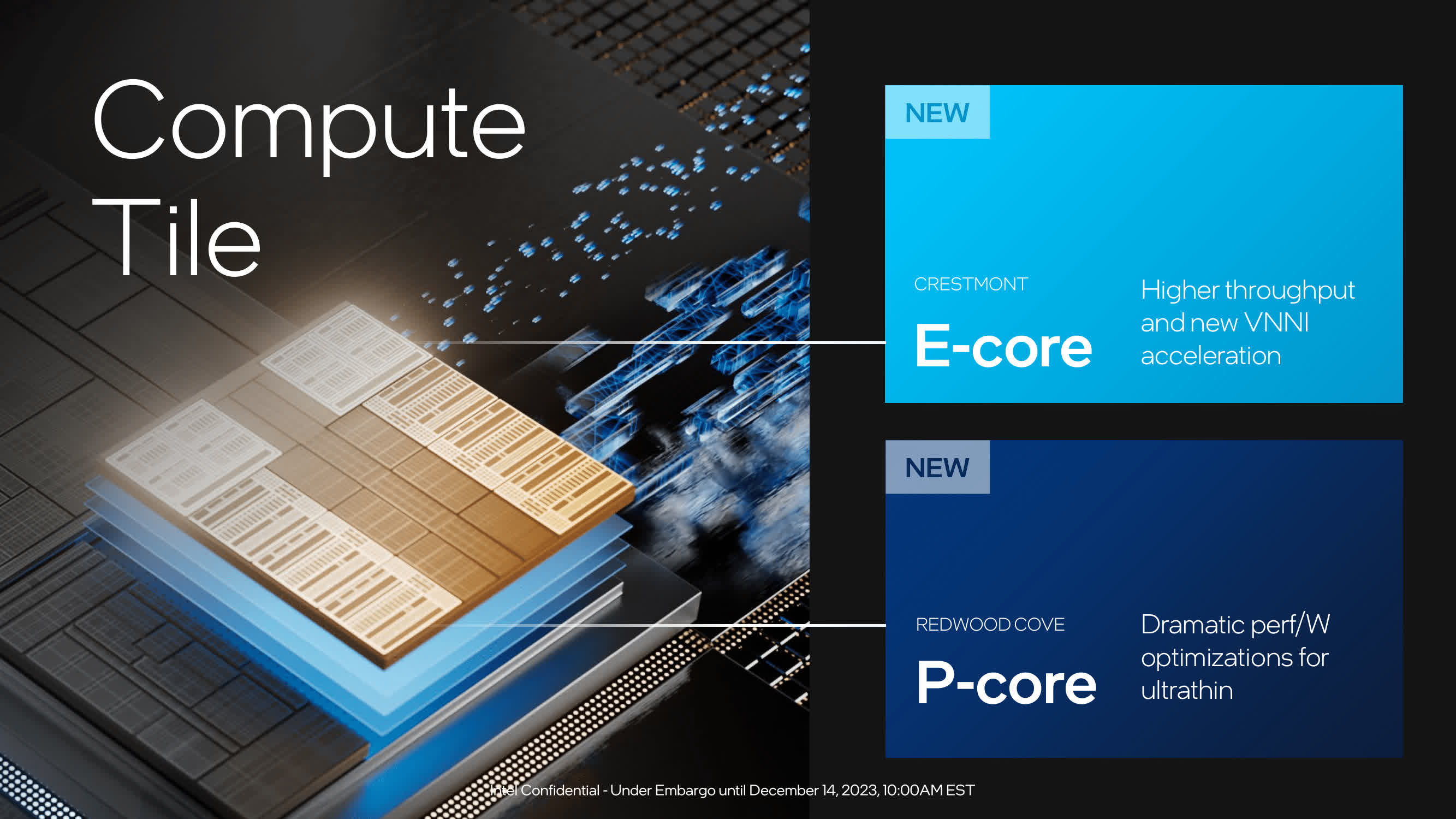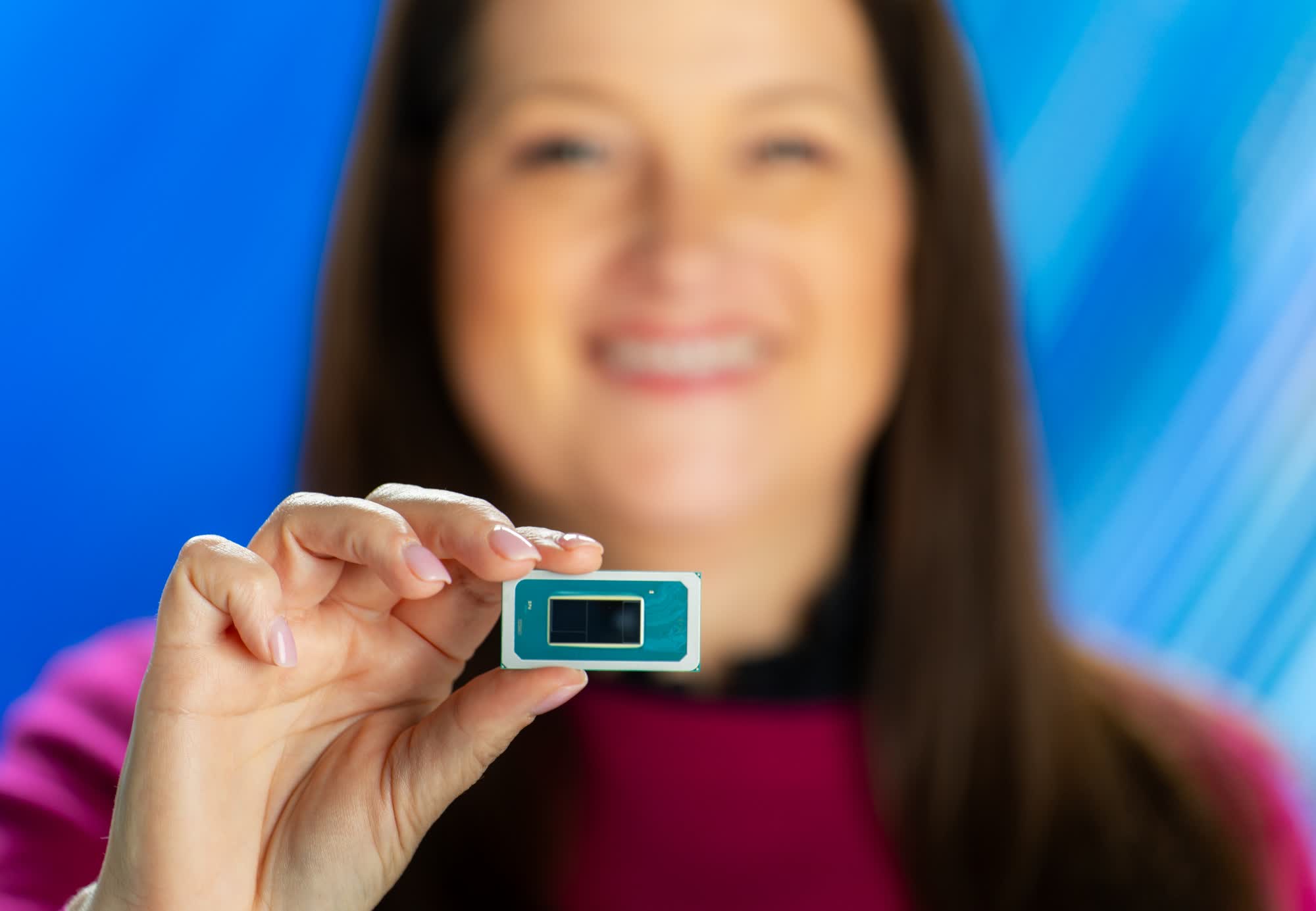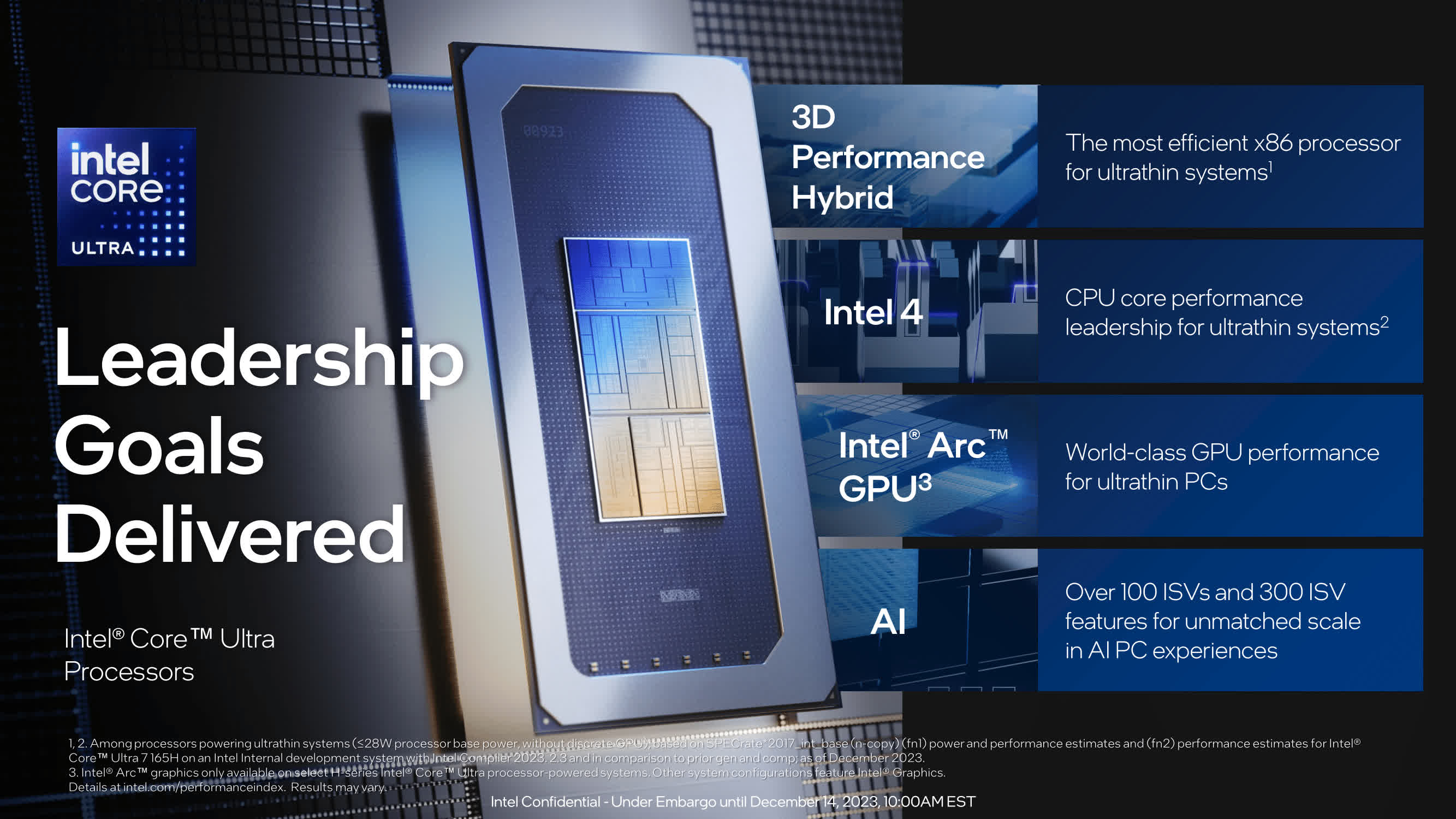In brief: Intel has announced the first mobile CPUs based on its new Meteor Lake platform, and they are available globally on store shelves and online starting today. Intel's Core Ultra line is the first to be built on the company's Intel 4 process technology. According to the chipmaker, it represents their largest architectural shift in four decades.
The Core Ultra line is initially comprised of four Core Ultra H parts and four Core Ultra U series chips. The Core Ultra H series is led by the Core Ultra 7 165H, a 16 core / 22 thread chip consisting of six performance (P) cores, eight efficiency (E) cores and two low-power efficiency (LP E) cores.
H series chips also include a built-in Intel Arc GPU featuring a maximum of eight X-cores clocked at up to 2.3 GHz, with support for modern features like hardware-accelerated ray tracing, mesh shading, AV1 encode and decode, HDMI 2.1, and DisplayPort 2.1 20G. According to Chipzilla, the new GPU affords up to double the graphics performance compared to the previous generation.
Intel says all of its new Core Ultra processors further come equipped with Intel AI Boost, a neural processing unit designed specifically for AI workloads. They'll help usher in the age of the AI PC along with the arrival of Windows 12. By 2028, four out of five PCs are expected to be AI-capable.
The newly launched Core Ultra 7 chips ship with 24 MB of Intel Smart Cache, and all models support up to 64 GB of DDR5-5600 or 96 GB of LPDDR5-7467. The platform additionally supports Thunderbolt 4 speeds up to 40 gigabits per second, Bluetooth 5.4, and Intel Killer networking.
Intel Core Ultra chips are launching in more than 230 products from over 35 leading OEM partners including Acer, Asus, HP, Lenovo, and Samsung.
Intel also has three additional chips (one H series and two U series) coming in Q1 2024: the Core Ultra 9 185H, the Core Ultra 7 164U, and the Core Ultra 5 134U.
https://www.techspot.com/news/101210-intel-launches-core-ultra-mobile-cpus-complete-dedicated.html
